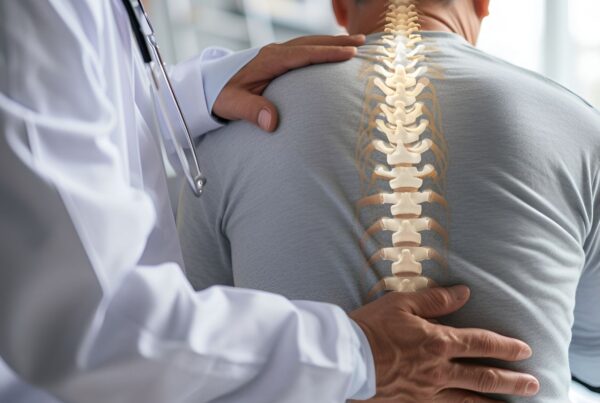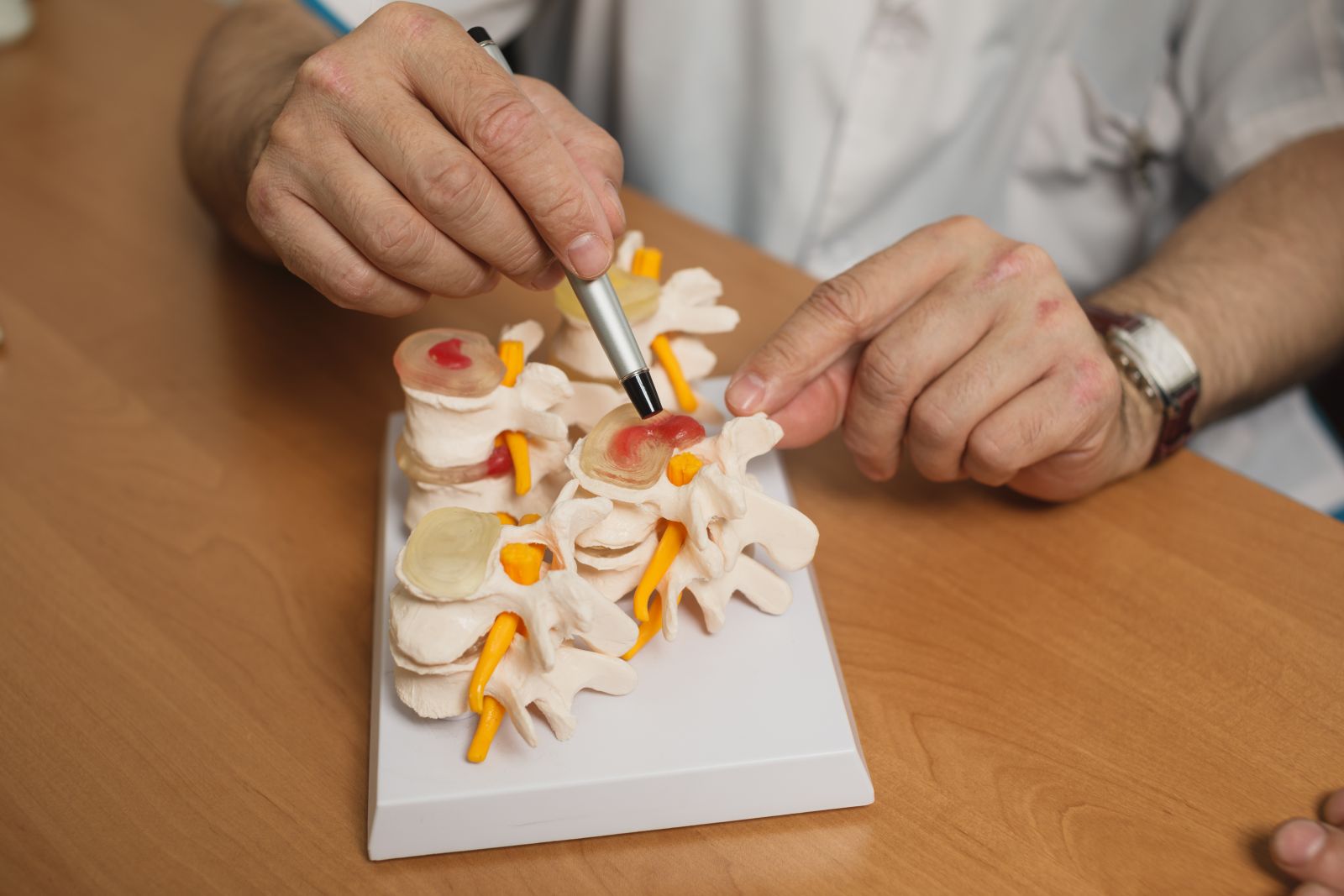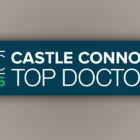Cervical spine issues can significantly impact your quality of life. Common symptoms include pain and reduced mobility. Some patients may also experience neurological symptoms like radiating pain down the arms, and numbness, tingling, or clumsiness in the hands and fingers. When non-surgical treatments fail to provide relief, it may be time to consider surgical interventions.
Two of the most commonly used options include anterior cervical discectomy and fusion (ACDF) and artificial disc replacement (ADR). Here’s a closer look at ACDF surgery vs. disc replacement so that you can identify which option may be the best fit for you.
Understanding Cervical Spine Conditions
Cervical spine surgery is often considered when conditions like herniated discs or degenerative disc disease lead to persistent discomfort and other symptoms that don’t respond to conservative management.
A herniated disc in your cervical spine can cause a variety of symptoms, such as numbness or tingling, dull or sharp pain in your neck and between the shoulders, and weakness in your hands or arms.
Some symptoms that may prompt surgical intervention include:
- Neck pain that worsens when you tilt or twist your head
- Numbness or tingling that radiates to your arms, hands, or shoulders
- Clumsiness in your hands and feet
- Difficulty performing basic activities due to limited mobility or pain
If you’re experiencing these or other symptoms that you think may be related to a cervical spine condition, it’s time to learn more about your options for neck pain relief. Contact Neurosurgeons of New Jersey to schedule a consultation.
Overview of Surgical Options
Anterior cervical discectomy and fusion and artificial disc replacement are the two primary surgical interventions to address cervical spine conditions. Here’s an overview of ACDF vs. disc replacement.
Anterior Cervical Discectomy and Fusion (ACDF)
ACDF is a widely used surgical procedure designed to address nerve root compression in the neck. It’s a proven approach for relieving symptoms and stabilizing the cervical spine.
The surgeon will make a small incision in the front of your neck. They will remove the damaged disc and insert a spacer or bone graft in the vacant space. The spacer maintains proper alignment of your cervical spine. They will then fuse the adjacent vertebrae together to eliminate motion at the affected area.
The fusion process ensures your cervical spine remains stable and protects your spinal cord. However, it also results in a loss of motion at the treated level.
Artificial Disc Replacement (ADR)
ADR, also known as total disc replacement or arthroplasty, is a newer surgical option that aims to preserve motion in the cervical spine while alleviating your symptoms.
As with ACDF, ADR procedures remove the damaged disc. However, the surgeon will replace it with a prosthetic disc instead of a spacer, which allows you to maintain natural movement in your neck.
ADR does not require the fusion of vertebrae, allowing for more natural neck movement post-surgery. This is the biggest difference between ADR vs. ACDF, as the latter results in some loss of movement in your neck.
It's time to get back
to doing what you love.
Comparing ACDF and ADR
Anterior cervical discectomy and fusion vs. artificial disc replacement varies in four key areas.
Motion Preservation
During ACDF procedures, the surgeon will remove one or more damaged discs and place a spacer or bone graft in order to relieve the pressure on the spinal cord and nerves. The discs in your neck provide mobility and so this results in a permanent loss of motion at that segment of your neck.
On the other hand, ADR preserves natural neck movement by maintaining motion and flexibility at the treated level. In both surgeries, most patients can resume doing activities they enjoy. However, the ADR preserves more of the normal biomechanics of the spine and so athletes and active individuals tend to favor ADR for this reason.
Recovery Time
ACDF surgery recovery takes about 4-6 weeks on average. At that point, you can typically resume your normal activities, provided you get approval from your surgeon and aren’t experiencing any complications.
ADR recovery times may be slightly shorter than ACDF recovery. This means you may be able to return to your normal routine sooner. The shortened recovery time can be especially appealing if you have a demanding job and need to get back to work.
Long-Term Outcomes
Anterior cervical discectomy and fusion have been performed for decades. Therefore, your surgeon can provide a good idea of what you can expect in the long term. The procedure has a well-documented success rate and can effectively alleviate many of the symptoms that prompted you to undergo surgery.
Artificial disc replacement is a more recent innovation. Early outcomes are promising, but there is less long-term data available.
Risk of Adjacent Segment Disease
Because of the loss of motion around the ACDF site, the discs above and below have to work harder and take more pressure. This can lead to adjacent segment disease, which is the degeneration of the discs immediately above and below the hardware. ADR can help reduce the risk of adjacent segment disease by preserving motion and distributing stress more naturally across your spine.
Patient Considerations
When deciding between anterior cervical discectomy and fusion and cervical disc replacement, it’s vital to consider certain aspects.
Eligibility Criteria
No surgery is right for everyone. It’s important to consider your individual goals, health history, age, and activity level when deciding between ACDF vs. artificial disc replacement.
Typically, ADR is recommended for younger, more active patients. However, older patients who are active and in overall good health may be candidates for ADR as well.
Certain conditions, like severe arthritis or spinal instability, may make ACDF a better option. It’s important to consult with your surgeon to determine which option is the best fit for you. They can use their experience and diagnostic testing to evaluate your suitability for each of the surgical procedures.
Potential Risks and Complications
Some common problems with anterior cervical discectomy and fusion include:
- Hardware failure
- Adjacent segment disease (wearing down of the discs below or above the fusion)
- Blood clots
- Nerve damage
- Pain at the incision site
- Persistent pain at the fusion site
- Reduced mobility
- Need for further surgery
ADR is not risk-free. In addition to concerns such as nerve damage, the disc may migrate or wear over time. In that case, you would require another surgery to install a new artificial disc.
Insurance and Cost Factors
Most insurance plans cover anterior cervical discectomy and fusion. Artificial disc replacement is becoming increasingly recognized as a viable treatment option, which means your insurance plan may cover the procedure. However, it’s important to verify coverage with your provider.
Both procedures will typically come with upfront costs, which may include deductibles and copays. Additionally, you may have to pay part or all of your rehab costs during the recovery period. The good news is that your surgeon should be able to provide you with an accurate estimate of the procedure ahead of time.
Consulting With a Specialist
When considering cervical spine surgery, consulting with an experienced neurosurgeon is essential. A specialist will evaluate your condition and conduct various tests to determine which procedure is the best fit.
An experienced surgeon from Neurosurgeons of New Jersey can further explain the pros and cons of cervical disc replacement vs. ACDF. Contact our team to schedule a consultation.
Depending on availability, we may be able to offer a same-day telehealth call, which allows you to get answers about your condition and potential surgical interventions quickly.
Don’t let cervical spine issues hold you back. Take the first step toward a healthier, pain-free future today.

About Livingston
Our team of board certified physicians, located in Livingston, New Jersey, are dedicated to bringing you the latest developments and treatment options for spinal surgery. We strive to produce the most clarified & clear content to help you make informed decisions on your medical journey. The road to feeling like your true self should not feel lonely- Let us help you. Please call us to schedule a consultation and speak to one of our team members.
Recent Posts:






